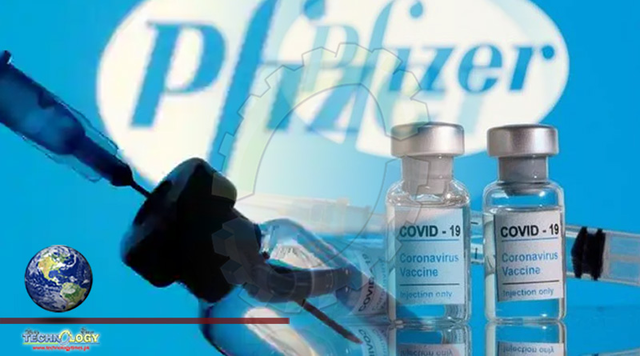The Pfizer-BioNTech vaccine’s efficacy against SARS-CoV-2 peaked at 96.2% at seven days to two months after the second dose and then declined to 83.7% at four months, a preprint from Pfizer has reported.

The Pfizer-BioNTech vaccine’s efficacy against SARS-CoV-2 peaked at 96.2% at seven days to two months after the second dose and then declined to 83.7% at four months, a preprint from Pfizer has reported.
The preprint, which contains the latest data from the original clinical trial, found an average decline in a vaccine efficacy of 6% every two months. Researchers have said that trials to evaluate the efficacy of booster trials after a longer interval are underway. A booster vaccine in England is expected to be rolled out to the people most vulnerable to covid-19 from September.
Around 44 000 people aged over 16 were recruited to the clinical trials from July to October 2020, including participants from the US, Argentina, Brazil, South Africa, Germany, and Turkey. Of these, half were given the Pfizer vaccine and half were given the placebo, a saline solution. The study also included around 2200 participants aged 12 to 15 at 29 US sites, recruited from October 2020 to January 2021, who were also randomly allocated 1:1 to receive the vaccine or placebo.
The preprint said that from seven days after the second dose 86-100% efficacy was observed across diverse demographic profiles, including age, sex, race/ethnicity, and factors increasing the risk from covid-19, such as high body mass index and other comorbidities. The vaccine was reported as highly efficacious in various geographical regions including North America, Europe, South Africa, and Latin America.
Adverse events
Looking at safety, the researchers noted that decreased appetite, lethargy, asthenia, malaise, night sweats, and hyperhidrosis were new adverse events attributable to the Pfizer vaccine. Overall, few participants had serious adverse events or adverse events leading to study withdrawal.
During the blinded, controlled period of the study, 15 vaccine recipients and 14 placebo recipients died. In the open-label period, three Pfizer recipients and two original placebo recipients who received Pfizer after unblinding died. Investigators concluded that none of these deaths was considered to be related to the vaccine.
The researchers noted limitations to the study, including that it did not look at whether the vaccine prevented asymptomatic infection.
Originally published by: The BMJ